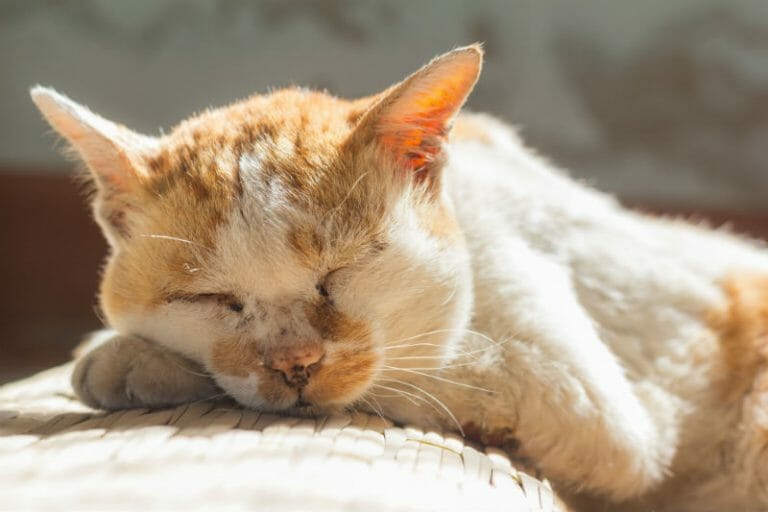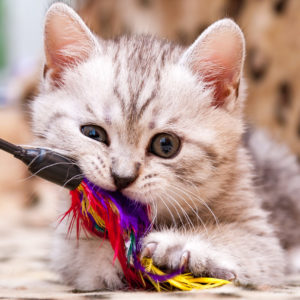Hyperthyroidism is a condition caused by an over-active thyroid creating an excess in thyroid hormone. It can be seen in older cats. This increased volume of hormone is released, and it sets the body’s metabolic rate too high. When this occurs, we will see signs of weight loss despite an excellent appetite, excessive thirst, increased urination, restlessness and dehydration. Many cats will have chronic intermittent vomiting or diarrhea.
Your veterinarian will run blood work to confirm the diagnosis, and your cat will be started on an appropriate medication. This medication comes in multiple forms – a pill, an oral liquid that can be flavoured and a transdermal gel that is placed on the inner ear to be absorbed. Oral medication is the standard and is the most consistent, but we understand that with cats, giving them pills is not always possible.
Starting your cat on medication is just the beginning. We need to see the pet back for follow up blood work to check for hidden kidney disease and ensure we do not over-correct and create a condition of hypothyroidism. We also need to ensure we do not undercorrect or you may notice some improvement in your pet, but they may still feel unwell.
Your pet will need to come in regularly for physical exams as their health can change rather quickly in their senior years. We will also need to weigh your cat to ensure there is no weight loss, and blood work to make sure the medication dose can stay the same. A very slow growing thyroid tumour causes hypothyroidism, so the dosage of medication required to control the problem WILL change over time. Getting blood tests will include kidney function tests; it important to monitor kidney function as it is driven by blood pressure. Higher blood pressure improves the kidney’s ability to filter your cat’s blood of waste materials but it slowly destroys kidney tissue. Blood pressure rises significantly in hyperthyroid cats and may hide the fact that your cat may also have kidney disease.
My cat does not like to go to the vet. We have many tips and trick to help PLUS inexpensive calming medication, so PLEASE ask us if this will help both you and your cat.
Written by: Darlene Cannon, RVT




